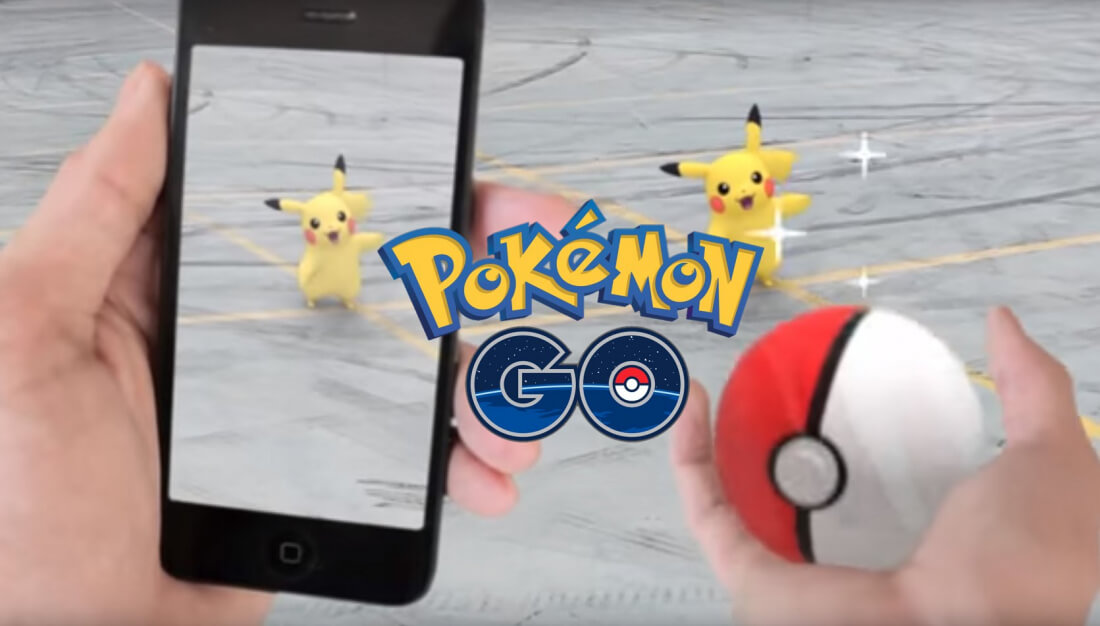No, it's not the first and no, it's not the best. But, there is no question that the incredible success of the Pokemon Go game is an absolute watershed moment for augmented reality.
Despite serious questions about security issues (both digital and physical), battery life impact and cloud infrastructure support, among other issues, the game's incredible, nearly overnight success now means that no one will ever need to explain what augmented reality is to almost anyone.
"You know, like Pokemon Go." "Oh, got it."
Simple though that may sound, it's huge. And it's something that this still fledgling technology really needed.
The truth is, augmented reality and virtual reality are technologies that are very difficult to explain to people who haven't had the chance to actually try them. Many tech industry insiders seem to be glossing over this as a non-issue, but for these technologies to really go mainstream at any time in the future, this is exactly what needed to happen. So, it's important to recognize the Pokemon Go phenomenon for what it is---a game changing opportunity that sets the stage, eventually, for the success of other augmented reality-based applications and devices.
At the same time, it's important to point out that this does not mean we will soon see a raft of successful AR-based games and other applications. We will undoubtedly see an enormous number of AR-related launches, regardless of how quickly (or not) the Pokemon Go craze fades out, but the vast majority will have little to no impact whatsoever.
As many others have rightly pointed out, the combination of Pokemon, smartphones, GPS, and AR is a match made in heaven---and one that won't be easily captured again, at least to this degree. The ephemeral and cartoon nature of Nintendo's famous characters, as well as the whole gestalt of what Pokemon are, and have been, to the critical millennial audience that's at the heart of this craze, makes the Pokemon Go phenomenon a singularly unique opportunity. It is well-timed, and in spite of the concerns mentioned at the beginning, seemingly well executed.
Still, the fact that hundreds of millions of people are getting their first direct exposure and personal experience with augmented reality---simple though it may be---can't help but be a boost to the future of this exciting new technology.
The fact that hundreds of millions of people are getting their first direct exposure and personal experience with augmented reality---simple though it may be---can't help but be a boost to the future of this exciting new technology.
Plus, Pokemon Go is providing a number of other interesting and unexpected benefits to augmented reality, particularly around physical activity and social interaction. In an age where technology usage has led to people sitting and staring blankly into their smartphone screen as the sad new normal, the phenomenon of people moving around and talking to each other because of their tech devices is an incredibly refreshing change---short-lived though it may be.

The social impact and success of Pokemon Go also raises questions about virtual reality, which tends to be much more of an individual experience. Yes, there is work being done to make virtual reality applications more social, but the nature of the experience makes these efforts more challenging. Whether this will matter in the long run is hard to say at this point, but I think the surprisingly social nature of Pokemon Go should make VR device and application makers do some serious thinking about what lessons they can learn from it.
For augmented reality device makers, the challenge will be to show people why they need a dedicated device. If they can get the simple, but satisfying AR experience they want from a "regular" smartphone, they're going to have to build a compelling value argument for why people need to make the leap to a separate AR device.
Of course, it's important to bear in mind that we're just talking about a smartphone game. Given the very finicky and quickly changing tastes of mobile gamers, Pokemon Go may not even make it as a historical footnote for this year. Still, it has the feel of being something that will have a somewhat longer-lasting impact, particularly because of the manner in which it's introducing people to a new concept.
It's easy to forget how difficult it is for critical tech breakthroughs to reach mainstream acceptance. But the simple, silly experience of capturing Pokemon through the compute and sensor-equipped devices we all carry---our smartphones---is going to introduce an enormous number of people to a completely different way of thinking about how tech devices can change (and improve) the manner in which they interact with the world around them. In my mind, that's an important step forward.
Bob O'Donnell is the founder and chief analyst of TECHnalysis Research, LLC a technology consulting and market research firm. You can follow him on Twitter @bobodtech. This article was originally published on Tech.pinions.
